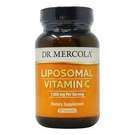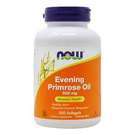Can Oils and Omega Fatty Acids Treat Lupus?
 A characteristic symptom of lupus is inflammation of various tissues of the body, including in the kidneys, joints, lungs, and heart. Omega-6 fatty acids (specifically linoleic acid and gamma-linolenic acid) are notable for their ability to help reduce inflammation throughout the body. Inflammation is not only painful, but it can also be the cause of various other symptoms that seem on the surface to be unrelated to the inflammation. Bringing down inflammation can provide relief from discomfort.
A characteristic symptom of lupus is inflammation of various tissues of the body, including in the kidneys, joints, lungs, and heart. Omega-6 fatty acids (specifically linoleic acid and gamma-linolenic acid) are notable for their ability to help reduce inflammation throughout the body. Inflammation is not only painful, but it can also be the cause of various other symptoms that seem on the surface to be unrelated to the inflammation. Bringing down inflammation can provide relief from discomfort.
Evening primrose oil and borage oil are two popular, safe, and effective supplements that contain high levels of essential omega-6 fatty acids. Evening primrose oil must be taken for 4-6 months to produce results (although results are often impressive when they start to show). When these fatty acids are deficient, the body cannot produce enough prostaglandin E1 (PGE1), an inflammatory regulator. Evening primrose oil and borage oil can also be rubbed directly on the body where there is pain.
This supplement can also help reduce the incidence of headaches, migraines, and hot flashes.

The Barefoot Healer's Guide to Autoimmune Disease, Volume 1 - BUY HERE!

The Post-COVID Vaccine Recovery Book and Autoimmunity Reference Guide

Related Posts:
Resources:













